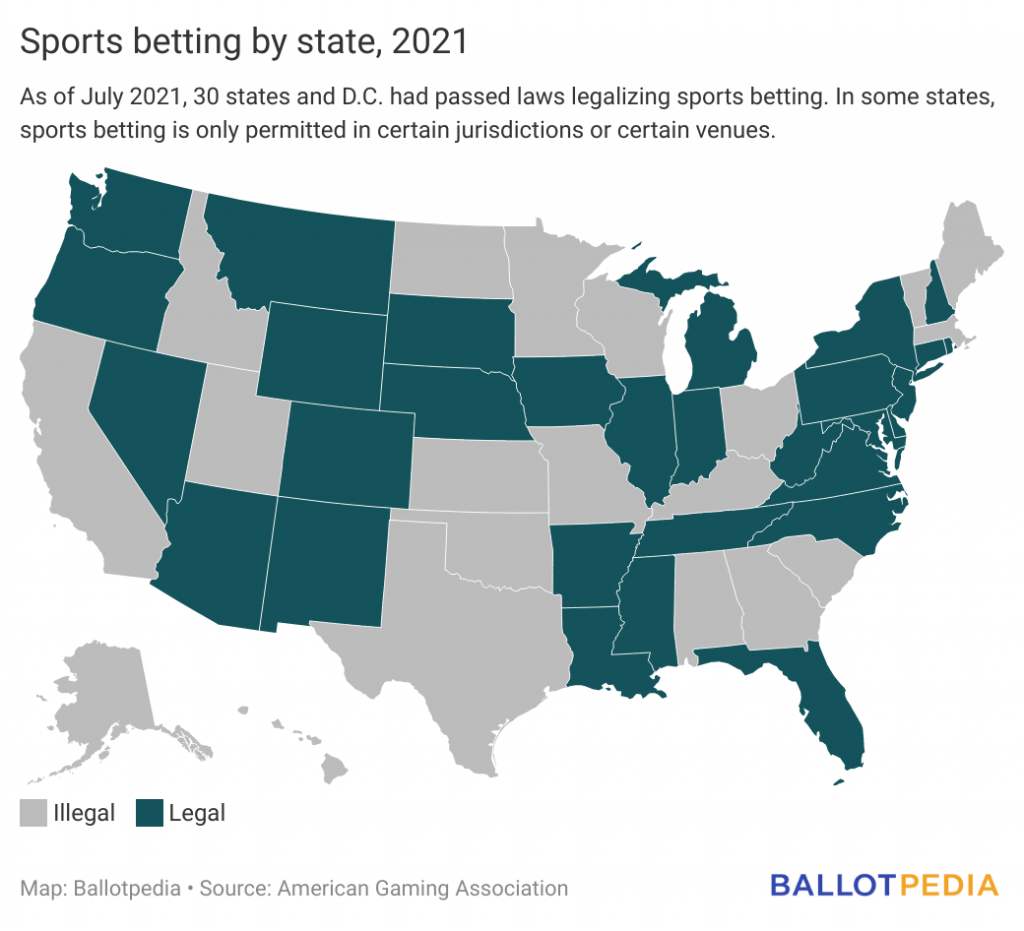Welcome to the Friday, August 27, Brew. Here’s what’s in store for you as you start your day:
- Gaming compact between Seminole Tribe and Florida goes into effect
- Local Elections: School board filing deadline updates
- #FridayTrivia: What percentage of absentee/mail-in ballots cast last year were rejected?
Gaming compact between Seminole Tribe and Florida goes into effect
The Seminole Tribe and the state of Florida have approved a compact, or agreement, giving the Tribe the exclusive right to conduct sports betting in the state, including online wagering. Under the compact, the Tribe must share revenue from sports wagering with the state for the next 30 years, with the state expected to receive up to $6 billion by 2030. The federal Bureau of Indian Affairs published the compact in the Federal Register on Aug. 11.
Congress passed the Indian Gaming Regulatory Act (IGRA) in 1988, which allowed tribes to establish casino gambling on tribal land and permitted states to form compacts with tribes to regulate gaming. Ballotpedia identified 193 such compacts published in the Federal Register since 1997. The IGRA requires any gaming activities established through compacts between Indian tribes and state governments occur only on Indian lands.
Two Florida casinos have filed lawsuits challenging the compact in U.S. district court, alleging that allowing online sports wagering violates federal law since bets can be placed anywhere in the state and not just on Indian lands. The suits challenge the compact’s provision stating that online sports betting in Florida takes place on the Seminole Tribe’s lands because that’s where the sportsbooks and servers are located.
Sponsors of an initiative to allow entities other than the Seminole Tribe to conduct sports betting in Florida are attempting to qualify a measure for the 2022 ballot. Sponsors must submit 891,589 valid signatures in time for election officials to verify them by Feb. 1, 2022. Additionally, sponsors must collect signatures equaling at least 8% of the district-wide vote in the last presidential election from 14 of the state's 27 congressional districts.

Local Elections: School board filing deadline updates
Candidate filing periods for municipal and school board positions are open in cities across the country. Here’s an update about recent candidate filing deadlines for school board positions in three states:
The filing deadline is today—Aug. 27—for candidates to run for school board across Colorado. Ballotpedia is covering school board elections this year for 47 seats in 16 districts in the state, including the two districts with the highest enrollment: Denver Public Schools and Jeffco Public Schools.
Candidates who want to run for a position on a Colorado school board must:
- Be a registered voter in the corresponding school district for the 12 months before the election,
- Be a resident of the corresponding geographic district if the school district elects school board members by district, and
- Not have been convicted of a sexual offense against a child.
In the Jeffco Public school district in suburban Denver, three of the board’s five seats are up for election. The three incumbents in these districts—Susan Harmon, Ron Mitchell, and Brad Rupert—were all first elected in a 2015 recall election and re-elected to a full term in 2017. None of these incumbents have announced they are running for re-election this year, according to a list of unofficial candidates on the Jeffco Board of Education website.
The filing deadline to run for school board passed on Aug. 24 in four of seven districts on the Albuquerque Public Schools Board of Education, the largest school district in New Mexico. The last time an incumbent ran for re-election and lost in this district was in 2015. The official candidate list for these elections is not yet available.
The filing deadline to run as a write-in candidate for school board in Ohio passed on Aug. 23. Election officials will only count votes for write-in candidates who file a declaration of intent and pay a $30 filing fee. Voters will know that a write-in candidate has filed for a specific office because a blank line will appear on the ballot with “Write-in” below the line. According to the Ohio School Boards Association, “voters won’t be given a list of official write-in candidates, but election officials will provide a list, if requested. Voters who know the name of a write-in candidate they support can simply type in the name on the voting machine or write in the name on an absentee ballot.” Ballotpedia is covering school board elections this year for 61 seats in 20 districts in Ohio.
Ballotpedia provides in-depth coverage of school board elections in America's largest school districts by enrollment. In addition to the 200 largest school districts in the nation, Ballotpedia covers school districts that overlap with the nation’s 100 most populous cities. This year, we’re covering elections for 504 school board seats in 178 districts nationwide.
#FridayTrivia: What percentage of absentee/mail-in ballots cast last year were rejected?
In Monday’s Brew, we highlighted our recently completed analysis of the rates that election officials rejected absentee/mail-in ballots in the 2020 general election. Voters cast 70.5 million absentee/mail-in ballots nationwide in 2020. For comparison, 30.4 million absentee/mail-in ballots were cast in 2018, and 33.4 million such ballots were cast in 2016.
What percentage of absentee/mail-in ballots cast last year were rejected?


